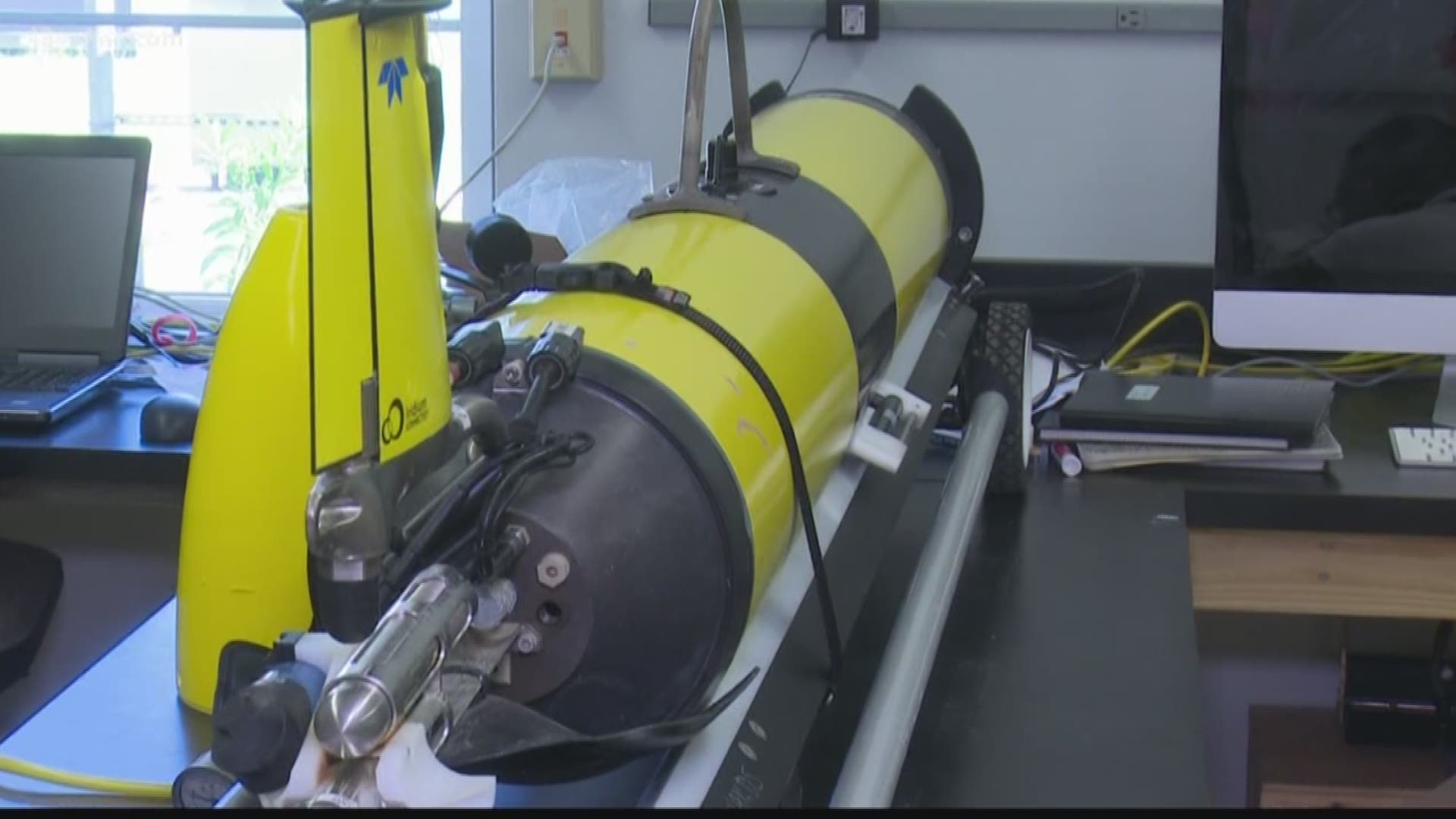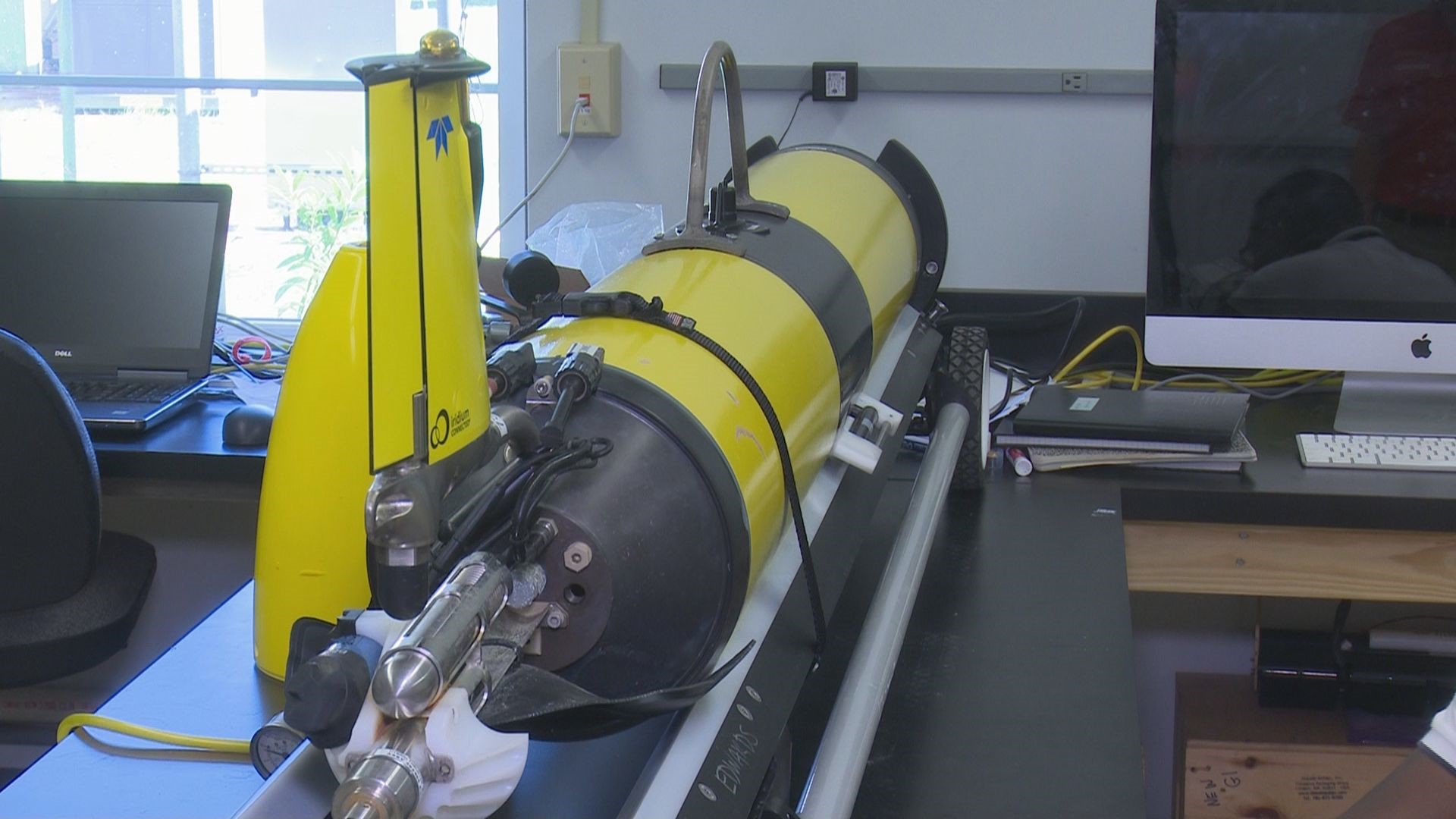MACON, Ga. — Every hurricane season, meteorologists are tasked with figuring out where tropical storms and hurricanes will go and how strong they'll be.
Meteorologists have significantly improved the accuracy of track forecasts over recent decades, however, there hasn't been near as much improvement in intensity forecasts over the same period of time.
Check out this chart from NOAA:
It indicates the reduction in error in track forecasts. The downward slope means forecasters at the National Hurricane Center have improved their ability to accurately forecast where the storm will go.
![]()
Unfortunately, there has not been the same reduction in error forecasting. Researchers at the Skidaway Institute of Oceanography are looking to change that.
Skidaway Gliders are motor-less, battery-operated gliders that can travel hundreds of miles and collect all kinds of data. They move through the water by shifting weight and buoyancy to rise and fall. Wings on the sides generate lift, and allow the glider to travel forward.
There are several sensors on the glider used to collect information on sea surface temperature, salinity, density, and biological factors.
To meteorologists, these gliders are powerful tools. Since they can rise and sink through ocean water, they allow researchers to generate a temperature profile of the ocean.
Much like weather balloons provide a thermodynamic profile of the atmosphere, gliders essentially do the same.
This is important since hurricanes use the warm ocean water as fuel for development. Knowing how deep this warm water is, or how much warm water is actually able to mix to the surface, is critical to the forecast.
Now that meteorologists have this data, it can be integrated into weather models and improve forecasts right away. Back in 2018, Skidaway Gliders significantly improved an error in the forecast for Florence.
A 14 degree temperature error was corrected and ingested into the Navy's ocean models. This ultimately lead to a more accurate intensity forecast in the days following the error correction.
This is life-saving research. In a time where oceans are changing, these gliders are providing information to meteorologists that would otherwise not exist.
WHAT OTHER PEOPLE ARE READING
STAY ALERT | Download our FREE app now to receive breaking news and weather alerts. You can find the app on the Apple Store and Google Play.
STAY UPDATED | Click here to subscribe to our Midday Minute newsletter and receive the latest headlines and information in your inbox every day.
Have a news tip? Email news@13wmaz.com, or visit our Facebook page.


